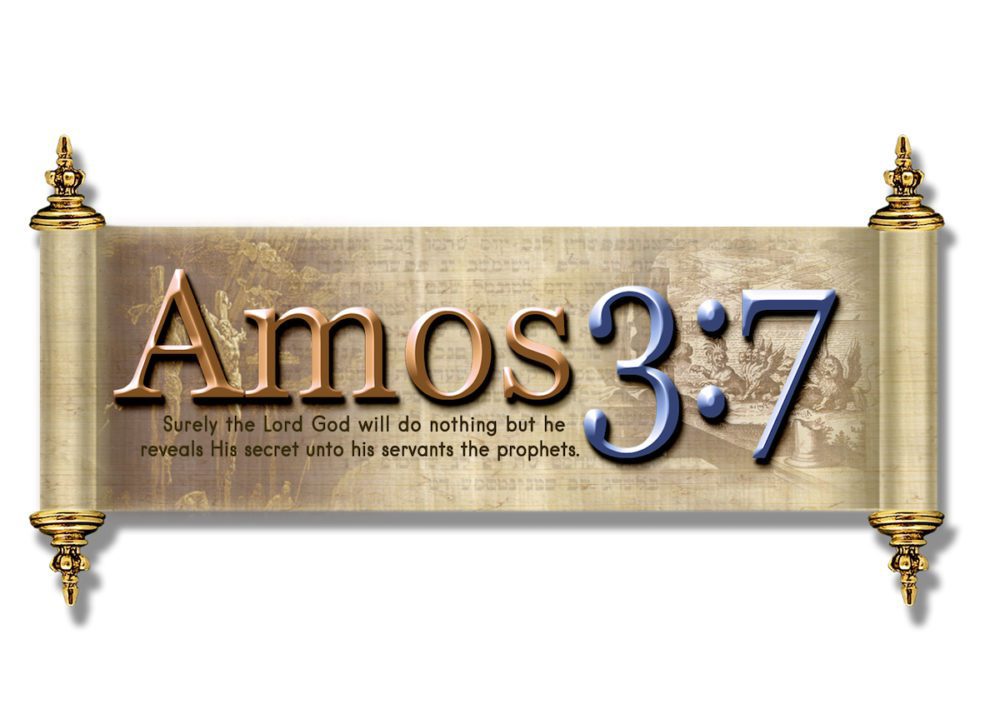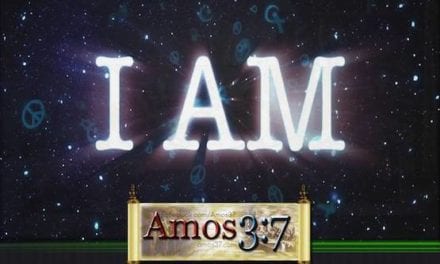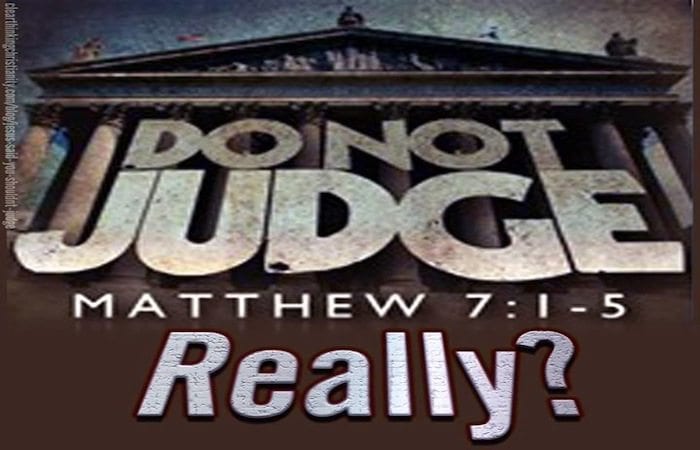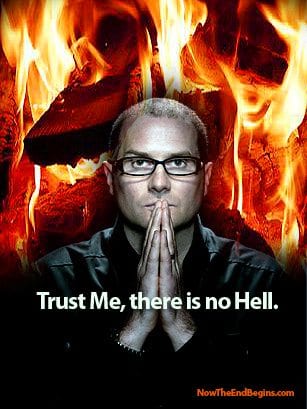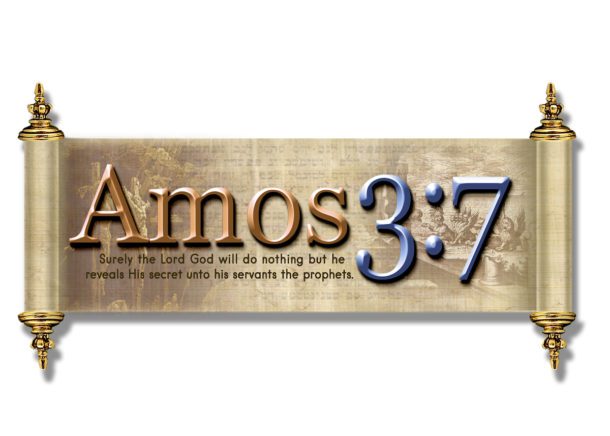 In these Last Days as deception and apostasy worsens, there seem to be particular centers which draw a higher number of deceivers than usual. Just as we cannot accept an “apostle”, “prophet”, or “teacher” just because they say so, neither can we accept someone simply because they claim some kind of special gifting. As with all things spiritual, our discernment to examine their fruit determines the degree to which it conforms to God’s Word. (Excerpt)
In these Last Days as deception and apostasy worsens, there seem to be particular centers which draw a higher number of deceivers than usual. Just as we cannot accept an “apostle”, “prophet”, or “teacher” just because they say so, neither can we accept someone simply because they claim some kind of special gifting. As with all things spiritual, our discernment to examine their fruit determines the degree to which it conforms to God’s Word. (Excerpt)
The Problem with Discernment
And this I pray, that your love may abound still more and more in real knowledge and all discernment, so that you may approve the things that are excellent, in order to be sincere and blameless until the day of Christ; having been filled with the fruit of righteousness which comes through Jesus Christ, to the glory and praise of God.
— Philippians 1:9-11
These are the verses we selected at Walk with the Word as our theme. They are prominently displayed at the top of the home page of our website with the exact emphasis provided here. To us these verses are an important application of how the truth of God’s Word needs to be incorporated into our life so that we can possess biblical love which knows how to reject the ways of the world in favor of God’s. But there are many ministries whose websites quote these verses with the aim of promoting just one single word contained within: “discernment”.
Please note from the very outset I am not saying that everyone who calls themselves a “discernment” ministry is false, only that on biblical grounds I question so very many of them. Prior to 1995 (which by no coincidence is the year in which the Internet really became mainstream with the general public) I do not believe you could find a person or organization who claimed to be a “discernment ministry”. How did the church survive for more than 1,900 years without “discernment” ministries? Why are they all of the sudden needed now?
I believe a big part of the answer is that it is proof we have entered into the Last Days, particularly into the growing darkness of deception and apostasy predicted to come. There seem to be those who act in the function of the watchmen spoken of in the Old Testament who are sounding the alarm the best they can not only about the rest of the prophetic events associated with the End Times which are just out of sight the other side of our present horizon, but the prolific deception that has entered the church in unprecedented fashion as a prelude to same. But I have come to believe that just as the true prophets of God are numerically dwarfed by false prophets as part of Satan’s scheme, and the true teachers vastly outnumbered by the false, so among the myriad of “discernment” ministries the true and faithful by the standard of God’s Word are also relatively few.
One of the most common characteristics of those I question has to do with how much time they spend talking about their “gift” and the authority they believe clings to its coattails along with their affection for discrediting other “discernment” ministries. In other words, the ones I give the least respect spend more time talking about their gift, their insight, and their superiority over rival ministries to the point that, whether they state it plainly or not, they would have us believe we cannot discern the truth of a matter without them. This behavior is akin to one of the first deceptions Satan introduced during the earliest years of the church: Gnosticism. It is a person’s belief that they alone have a pipeline to God, that they alone hear and know the truth, and only they alone can guide you to it. I see many varying degrees of Gnosticism in many of these ministries from those who only seem to be infected by the early stages of the disease, to those who are terminally ill with it.
I copied the following off a website which I feel is typical of those ministries whose authenticity I question. This is a common Internet explanation of “the gift of discernment”:
“The gift of discernment is the special ability that God gives to certain members of the body of Christ to distinguish between truth and error, and to know with assurance whether certain behavior purported to be of God is in reality divine, human, or satanic. People with this gift:
- Distinguish truth from error, right from wrong, pure motives from impure;
- Identify deception in others with accuracy and appropriateness;
- Determine whether a testimony attributed to God is authentic;
- Recognize inconsistencies in a teaching, prophetic message, or interpretation;
- Are able to sense the presence of evil.”
My contention is that if I just apply common sense alone to this statement, that I can do practically everything here without ever needing the “gift” of discernment. Go through each of these characteristics and tell me which of them you cannot achieve by employing God’s Word.
Do you need a gift to “distinguish truth from error, right from wrong, pure motive from impure”? Do you need a gift to “identify deception in others”? Do you need a gift to determine the authenticity of someone’s testimony? Do you need a gift to “recognize inconsistencies in a teaching, prophetic message, or interpretation”? These things can all be accomplished by the application of the Bible in your own hand! The only reason you would need someone to do this for you is if you are not a Christian who lives in the Word. Gifting has little to do with these activities.
If your brow is furrowed right now because you are trying to reconcile what I am talking about with the fact that you know Scripture teaches that one of the gifts of the Spirit is discernment, then you have arrived at the crux of the matter. The problem most likely begins with the word “discernment” itself.
And this I pray, that your love may abound still more and more in real knowledge and all discernment,
— Philippians 1:9
and to another the effecting of miracles, and to another prophecy, and to another the distinguishing of spirits, to another various kinds of tongues, and to another the interpretation of tongues.
— 1 Corinthians 12:10 (NASB)
Why did the translators for the NASB choose to use the word “distinguishing” in the list of gifts in 1 Corinthians instead of “discernment” as chosen by most other translations? The Greek word Paul uses for “discernment” in Philippians is “aisthesis”, whereas in 1 Corinthians it is “diakrisis”. These are two completely different words which are not actually 100% synonymous with the English equivalent of “discernment”. It seems the problem starts with someone who believes that because their translation chose “discernment” in 1 Corinthians, it must follow that whenever the word “discernment” is encountered in Scripture it has to be referring to this gift.
If we merely peruse the academic resources available to us which provide more detail as to what each New Testament Greek word means, we will find that there is always a distinction made between “aisthesis” and “diakrisis”. It is only really possible to translate both into English as “discernment” if the reader is fully aware of all the many subtle differences in the dictionary definition of the English word “discernment” and that a very specific variation is being applied separately in each case.
The Complete Word Study Dictionary defines “aisthesis” as “to perceive with the external senses. Perception, with the senses as well as the mind. Involves knowledge based upon experience”. This is a clinical way of describing someone who in becoming more and more mature in their walk and application of God’s Word learns how to “discern” the difference between right and wrong, truth and error, pure from impure. It is not supernaturally attained. It should be the natural result of a life walking every day ever more closer to Christ.
Vine’s Complete Expository Dictionary illuminates the meaning of “diakrisis” as “to separate, discriminate. It is used of ‘discerning’ what is of the Holy Spirit”. In other words, it is the ability to distinguish the spiritual nature of something, to discriminate whether an act or power is brought about by the Holy Spirit, Satan, or the flesh. This is the one part of the Internet definition of the “gift of discernment” that can be assigned to “diakrisis” – “to know with assurance whether certain behavior purported to be of God is in reality divine, human, or satanic”.
What I fear has happened for many Christians is that the term “discernment” has been co-opted to the degree that many believers think of it strictly as a gift, allowing a whole class of Gnostics to assert, “You cannot know the truth of what is going on without us”. I have no doubt that there are true believers to whom the Holy Spirit has granted “diakrisis”. I just do not believe it is the majority of those presently claiming such. In fact, I would argue that those who kick and scream the loudest about being “gifted” are the most likely candidates for being completely devoid of same.
There is something intrinsically wrong with someone who feels compelled to win you over with their business card. That is what a lot of these people and ministries do, they expend a lot of effort selling us on their credentials and claims. Beware of such sites where the number one topic of their forums is their qualifications, their resume, their gifting. Some of them seem particularly absorbed with how all the other discernment ministries are getting it wrong and they are the only ones getting it right.
It is worth noting that the authentic discernment ministries I both support and appreciate spend no web real estate at all dedicated either to the gift of discernment nor their personal possession of it. It may not automatically qualify someone as authentic, but one of their shared characteristics is that they rarely promote or talk about themselves. A true servant of Christ is first and foremost concerned about the Master’s business, not their own.
So how can we tell the difference between good and bad discernment gifts or ministries? The same as with all other gifts or ministries.
- How do you discern a true teacher from a false teacher? It is by the degree to which their teaching conforms to or digresses from God’s Word.
- How do you discern a true prophet from a false prophet? It is by the degree to which their prophecy conforms to or digresses from God’s Word.
- How do you discern whether someone truly has the gift of “distinguishing spirits”? It is by the degree to which their findings conforms to or digresses from God’s Word.
One of the good examples I would hold up is Jackie Alnor of “Apostasy Alert”. There is no statement of “gifting” on her website. She never mentions that she has arrived at a conclusion based on a special impartation provided only to her by the Spirit. She simply and consistently documents what is wrong as measured against the standard of God’s Word. Whether it is an analysis of a new book we should be wary of, or the likes of popular personalities like Ted Haggard or TBN, she does not say, “God revealed to me personally that this is bad”. She is very specific in asserting that what they have said or done is in direct contradiction to God’s Word. I am not sure that she would ever claim to have “diakrisis”, but she is certainly a shining example of someone with “aisthesis”. (What is really ironic is that Jackie will look you in the eye and tell you she is not even operating a “discernment” ministry. Her explanation to me of what she does is, “I’m just a fellow believer warning others”.)
This is actually my ultimate point: I have rarely been presented with situations where “diakrisis” is needed. (Praise the Lord!) It is more often the tool for missionaries and those living in situations where demonic activity is closest to the surface of a particular situation or culture. But even those claiming “diakrisis” are most often betrayed as not actually possessing it because there is no evidence of “aisthesis” in their life! How can someone “distinguish” the divine from the demonic from the human if they provide no evidence they can “discern” basic truth according to God’s Word? And why would someone who is actually practicing the discernment of “aisthesis” claim the use and authority of “diakrisis” to justify their assertions?
‘I know your deeds and your toil and perseverance, and that you cannot tolerate evil men, and you put to the test those who call themselves apostles, and they are not, and you found them to be false;’
— Revelation 2:2 (NASB)
Beloved, do not believe every spirit, but test the spirits to see whether they are from God, because many false prophets have gone out into the world.
— 1 John 4:1 (NASB)
Do you believe there is any hint at all in these verses that in order to test what is spiritually true versus the false one must first possess “diakrisis” – the gift of distinguishing spirits? No, this is accomplished through “aisthesis” – the application of God’s Word to test and verify what is true or false.
Today we have hundreds of people claiming the title “apostle”. How can we tell the true from the false? “Aisthesis” – our acquired ability to measure all things against the standard of God’s Word.
Today we have thousands of people claiming the title “prophet”. How can we tell the true from the false? “Aisthesis” – our acquired ability to measure all things against the standard of God’s Word.
Today we have tens of thousands of people claiming the title “pastor” or “teacher”. How can we tell the true from the false? “Aisthesis” – our acquired ability to measure all things against the standard of God’s Word.
And, ironically, today we have many people and organizations claiming the title “discernment ministry”. How can we tell the true from the false? “Aisthesis” – our acquired ability to measure all things against the standard of God’s Word.
In these Last Days as deception and apostasy worsens, there seem to be particular centers which draw a higher number of deceivers than usual. Just as we cannot accept an “apostle”, “prophet”, or “teacher” just because they say so, neither can we accept someone simply because they claim some kind of special gifting. As with all things spiritual, our discernment to examine their fruit determines the degree to which it conforms to God’s Word. However, I would add the caveat that in reality this is the prudent activity EVERY Christian should engage in for any kind “ministry” presented to us. Just because someone adds the word “ministry” to “music”, “singles”, “youth”, or “discernment” does not make it so. As a Berean we are responsible to hold it accountable to the standard of God’s Word. Otherwise it is actually our own fault for allowing the false to obtain entrance where it does not belong. We will not be able to blame it on our not having a particular spiritual gift.
Moriel Archive » Blog Archive » The Problem with “Discernment” Article Source
In His Love,
[email protected]
Connect with Amos37
Stay up to date with Amos37.com eMail update (Weekly)
Free Resources for the growing Christian.
“But grow in grace, and [in] the knowledge of our Lord and Saviour Jesus Christ. To Him [be] glory both now and for ever. Amen.” 2 Peter 3:18
Blue Letter Bible Free Online Bible & Study Tools & Commentaries
Bible Classes College Level For Free to Enroll Track your progress.
Our Own Free Discipleship Course In Video HD.
